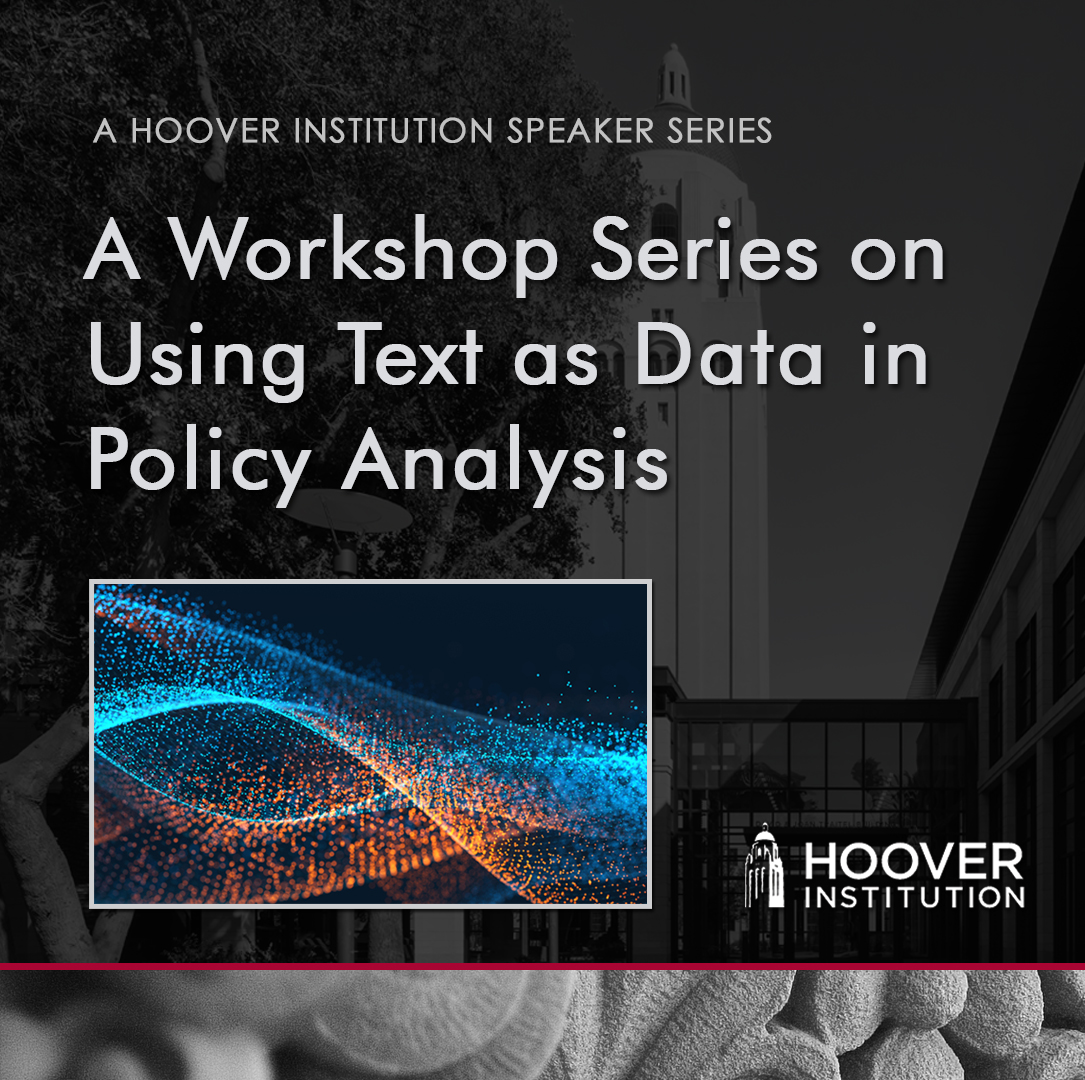
Alison McQueen and Jacqueline Basu speaking on "Christian Burlesque? Religion and Politics in Thomas Hobbes"
The Hoover Institution announces a new seminar series on Using Text as Data in Policy Analysis, co-organized by Steven J. Davis and Justin Grimmer. These seminars will feature applications of natural language processing, structured human readings, and machine learning methods to text as data to examine policy issues in economics, history, national security, political science, and other fields.
Our 8th session features Alison McQueen and Jacqueline Basu speaking on Christian Burlesque? Religion and Politics in Thomas Hobbes on Wednesday, January 26, 2021 from 9:00AM – 10:30AM PT.
ABOUT THE SPEAKERS:

Alison McQueen is an Associate Professor in the Departments of Political Science and History (by courtesy) at Stanford University. Her research focuses on early modern political theory and the history of International Relations thought. Her book, Political Realism in Apocalyptic Times (Cambridge University Press, 2018), traces the responses of three canonical political realists—Niccolò Machiavelli, Thomas Hobbes, and Hans Morgenthau—to hopes and fears about the end of the world. A second book project, Absolving God: Hobbes’s Scriptural Politics, tracks and explains changes in Thomas Hobbes’s strategies of Scriptural argument over time. Alison's other ongoing research projects explore treason in the history of political thought, the ethics and politics of catastrophe, and methods of textual interpretation.

Jacqueline Basu recently completed her PhD in Political Science at Stanford University, graduating with a focus in political theory as well as training in computational social science. Her doctoral research centered on the concepts of democratic stability, legitimacy, and authority. Jacqueline is currently a postdoctoral student in the Philosophy department at Stanford, working within a research group affiliated with the Stanford Institute for Human-Centered Artificial Intelligence (HAI). This multidisciplinary team brings together scholars from computer science, the humanities, and the social sciences to investigate historical processes of conceptual change.
WATCH THE DISCUSSION



















